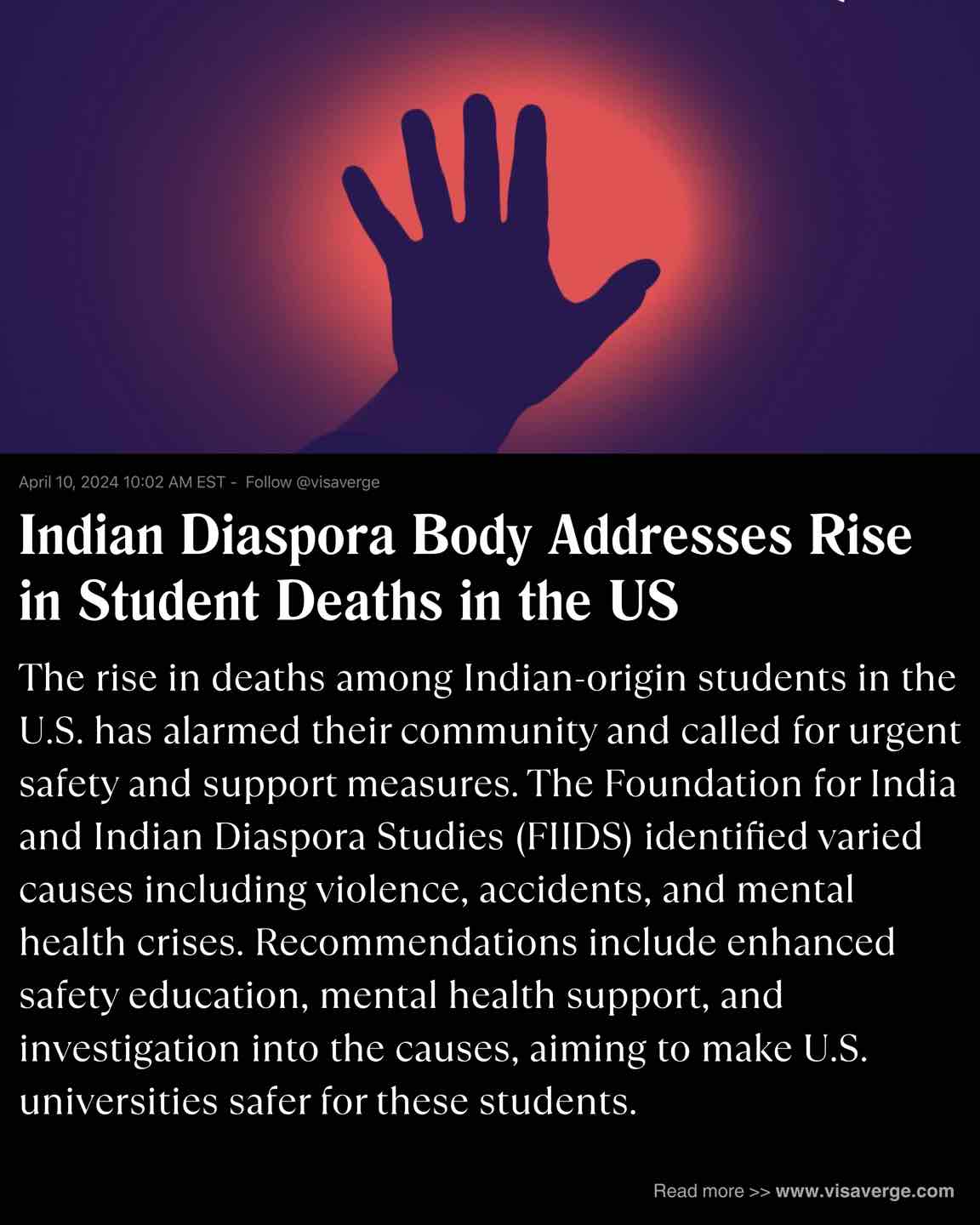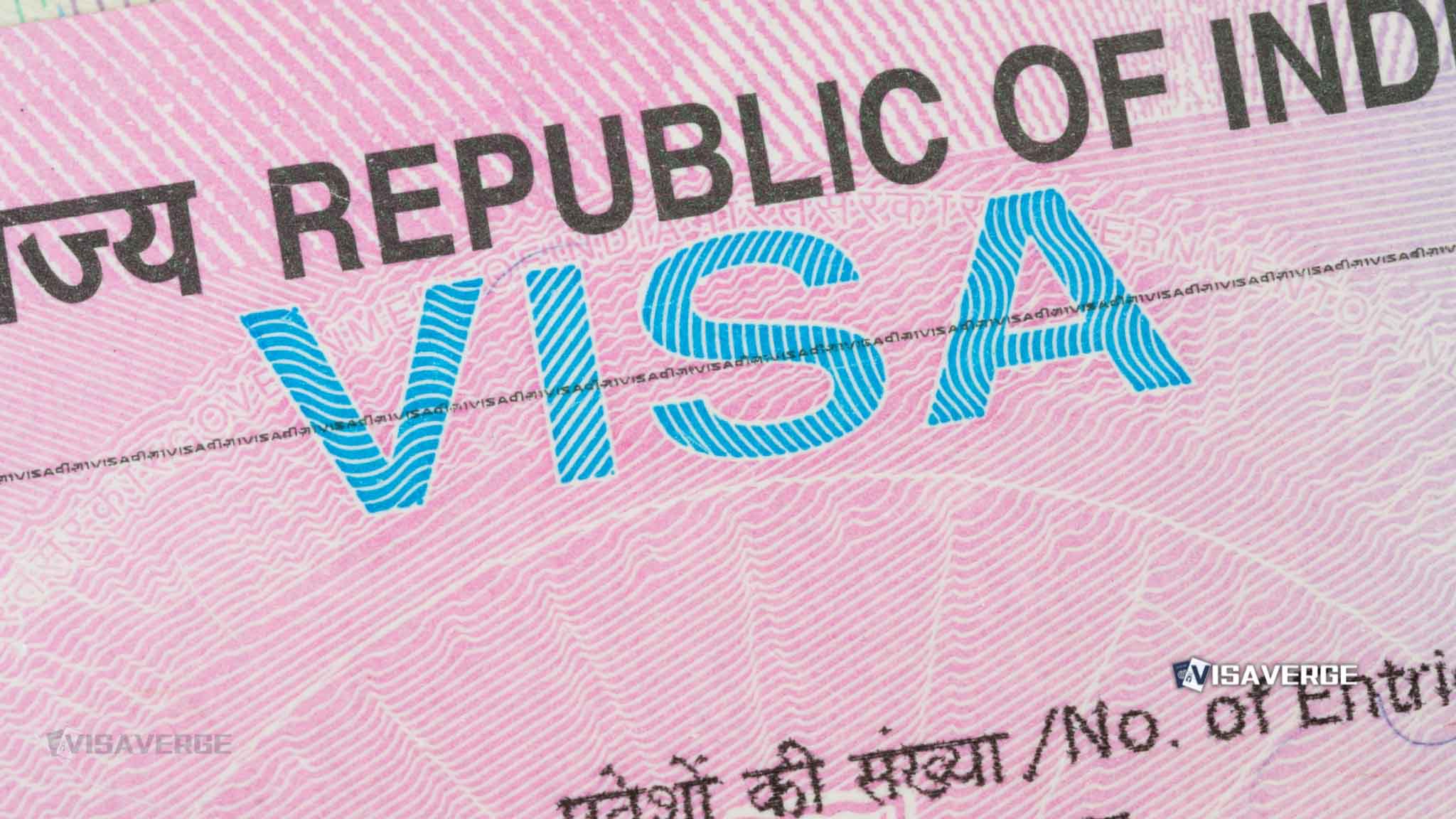The Concerning Rise in Deaths of Indian-Origin Students in the United States: A Call to Action
In recent months, the deaths of Indian-origin students across the United States have sent ripples of concern throughout the Indian diaspora and among educational institutions nationwide. A detailed analysis conducted by the Foundation for India and Indian Diaspora Studies (FIIDS) highlights the urgency of addressing this alarming trend. With causes ranging from suspicious shootings and environmental accidents to mental health issues, the call for a concerted effort to improve safety and support structures at US universities has never been louder.

What Is Behind the Spike in Student Deaths?
Since the dawn of 2024, the Indian student community in the US has been shaken by the loss of at least half a dozen lives under tragic circumstances. From the mysterious disappearance of a 25-year-old student in Cleveland to the shocking murder of Amarnath Ghosh, a 34-year-old classical dancer, in St. Louis, Missouri, the variety of incidents points to a complex web of risks Indian students are facing abroad.
The FIIDS points out that these deaths encompass a wide spectrum of causes:
– Suspicious shootings/kidnapping
– Environmental deaths due to lack of safety knowledge, such as monoxide poisoning and hypothermia
– Mental health issues leading to suicides
– Suspicious accidents and violent crimes
How Can We Address This Crisis?
Understanding the gravity of the situation, FIIDS has put forward several recommendations directed at the Department of State, Department of Justice, and the Education Department, as well as universities, student organizations, and the Indo-American community. The focus is on:
– Enhancing safety education to help students understand and mitigate risks in their environment.
– Improving search and rescue procedures to ensure quicker and more effective responses in emergencies.
– Implementing stricter rules against fraternity ragging, which has been a contributing factor in some cases.
– Increasing awareness among students about potential risks and safety precautions.
– Providing mental health support to address the psychological challenges that students face while studying abroad.
FIIDS also encourages an investigation into the alarming surge in deaths to address community concerns, including fears of hate crimes fueled by negative propaganda. While no conclusive evidence has been found to support these rumors, the very existence of such fears highlights the need for a more inclusive and supportive environment for Indian-origin students in the US.
The Impact on the Indian Student Community
Indian-origin students, who make up 25% of all international students in the US according to the Open Doors Report (ODR), contribute an astounding USD 9 billion per year in fees and expenses. Yet, the increasing number of their deaths could have far-reaching consequences on their confidence in the safety of US universities and potentially affect future inflow of students.
Dr. Lakshmi Thalanki from Boston, who has been collecting data on the incidents, expressed her concerns, saying, “The sudden surge of deaths among Indian students is alarming and suspicious.” This sentiment resonates across the community and underscores the urgent need for action.
A Call to Action for All Stakeholders
The recommendations put forth by FIIDS mark a crucial step towards making US universities safer for Indian-origin students. It is a call to action for government agencies, educational institutions, student organizations, and the broader community to come together and address this pressing issue. Providing comprehensive support systems and fostering a culture of safety and inclusivity is imperative to ensuring that Indian students can pursue their academic and professional dreams without fear.
For more detailed information on the regulations and support available for international students in the US, please visit the official US Department of State Exchange Visitor Program website.
Together, we can work towards creating a safer, more supportive environment that honors the valuable contributions of Indian-origin students to US universities and society at large. Let’s join hands in addressing this critical issue and ensuring that the tragic trend of student deaths is reversed for good.
This Article In A Nutshell:
Recent deaths of Indian-origin students in the US alarm communities. FIIDS calls for urgent action. Issues range from shootings to mental health. Recommendations include safety education, quicker emergency responses, stricter rules, and mental health support. Support needed to ensure a safer environment for Indian students and maintain their academic contributions.
— By VisaVerge.com
Read More:
- Investigation Underway for Indian Student Uma Satya Sai Gadde’s Death in the U.S.
- Tragic Asphyxia Death of Purdue University Student Neel Acharya
- Alarming Increase in Deaths Among Indian Students in the US – A Comprehensive List
- Family Suspects Murder in the Death of Indian Student Abhijit Paruchuri in the US







